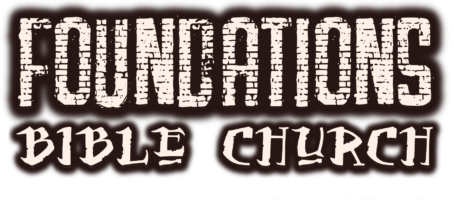Deuteronomy 32:1-6
Then Moses spoke the world of this song until they were finished, in the ears of all the assembly of Israel:
“Give ear, O heavens, and I will speak, and let the earth hear the words of my mouth. May my teaching drop as the rain, my speech distill as the dew, like gentle rain upon the tender grass, and like showers upon the herb. For I will proclaim the name of the Lord; ascribe greatness to our God!
The Rock, his work is perfect, for all his ways are justice. A God of faithfulness and without iniquity, just and upright is he. They have dealt corruptly with him; they are no longer his children because they are blemished; they are a crooked and twisted generation. Do you thus repay the LORD, you foolish and senseless people? Is not he your father, who created you, who made you and established you?”
An apologetics segment on Deuteronomy 32:6:
One of the three distinct yet coequal persons within the Trinity, God as Father surfaces in the OT as a title or in reference to His relationship with Israel:
Isaiah 64:8 “But now, O Lord, you are our Father.”
Jeremiah 3:19 “And I thought you would call me, My Father, and would not turn from following me.”
Jeremiah 31:9 “I am a father to Israel, and Ephraim is my firstborn.”
When Jesus appeared, both He and the NT writers referred to the Father, the Son, and the Spirit much more distinctly. The phrase God the Father occurs between 15 and 20 times in the NT, depending on which translation is used. In many instances where God the Father is mentioned, Jesus Christ is mentioned in the same verse.
God the Father and the Trinity. The coming of the Son, prophesied in the OT and fulfilled in the NT, highlights the distinction between Father and Son in the Trinity. The revelation found in the NT allows us to see God the Father with greater clarity in the OT. In the NT, God most often means “God the Father”-where He is seen as the authority or creative force behind the work on the Trinity. The creation story illustrates this in the division of labor between Father, Son, and Spirit. God (the Father) spoke the creation decrees (“Let there be”‘ Ps. 33:6) while God the Spirit hovered over the unformed earth (Gen 1:1,2). But God the Son was the agent of creation who carried out the Father’s decrees (John 1:1-3; Col. 1:16; Heb. 1:1,2).
God the Father and Jesus Christ. The Father’s authoritative role is also made clear in John 3:16: “For God so loved the world, that he gave his only Son.” The Father put in motion the activity needed to grant redemption to sinful humanity; the Son came to earth to carry out the plan. After that work was accomplished, the Father sent the Holy Spirit to indwell those who embraced the offer of redemption: “the Holy Spirit, whom the Father will send in my name” (John 14:26).
In Philippians 2:5-8, Paul confirms that Christ was “in the form of God” and possessed “equality with God” but willingly took on “the form of a servant” and “the likeness off men.” Christ “humbled himself by becoming obedient” to the Father by dying on the cross. The Son’s obedience and loyalty to the Father are pictured also in the temptation experience in the wilderness (Matt 4:1-11) and in Christ’s absolute submission to the Father during His earthly life and ministry (John 4:34; 5:19, 30; 6:38; 8:28, 42; 10:37, 38; 12:49; 14:10, 31; 15:10; 17:4). Christ’s humble obedience to the Father’s will provides an example for how Christians should relate to God, their heavenly Father.
God the Father and Christians. The Fatherhood of God is about more than just obedience; it highlights the love of God as well. Jesus was the first to refer to God as “Abba, Father” (Mark 14:36), Abba being an Aramaic word of endearment. The apostle Paul picked up Jesus’ reference to God as Abba, saying that every Christain enjoys the intimate privilege of calling God “Abba” (Rom 8:15). The idea that Christians have been “adopted” by God into His family, as brothers and sisters of Jesus Christ, further deepens our understanding of God as Father (Rom. 8:15, 23,29; Gal 4:5; Eph 1:5).
The same God who spoke the world into existence and sacrificed His only Son is the same Father who knows and meets the needs of all of His adopted children.
